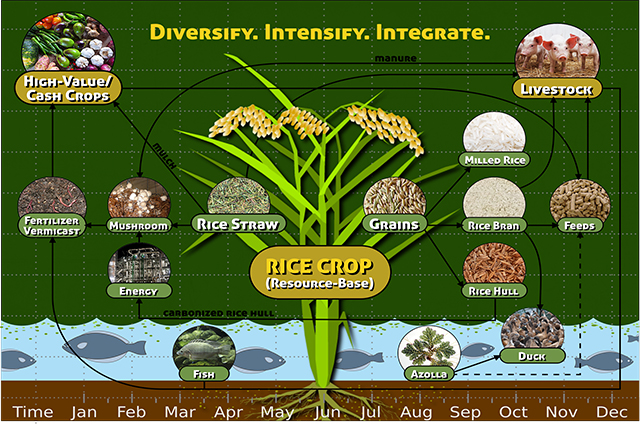Rice-based farming will increase farmers’ income and consumers will have healthier options according to Dr. Eufemio T. Rasco Jr., of the National Academy for Science and Technology (NAST) and a former executive director of PhilRice.
The said approach requires diversification, integration, and intensification of farming practices.
“Instead of rice mono-cropping, farmers should also grow other crops, and livestock alongside rice. With the use of existing models like vermiculture, mushroom production, mungbean, corn, garlic, duck, and fish that can be grown and maintained alongside with rice, farmers will have reduced dependence on rice as the main source of income,” said Rasco during a seminar at PhilRice, 13 January.
Rasco highlighted the significance of PalaYamaNayon, a PhilRice advocacy that aims to transform a community of farmers into agri-preneurs. Its scope is not limited to crops and livestock but also covers fishes and vermiculture. Its scale is not just for household food security but also covers the national food security as well.
In Palayamanayon, everything a farmer places in his farm serves a purpose. With rice as the main crop, vegetables and livestock are also integrated to optimize the overall farm system. Ducks and fish may be integrated for pest control and added income; or azolla may be planted as source of organic inputs. Nothing is wasted in the close-loop method.
With rice-based farming, consumers may also try other staples. Kamote, cassava, white corn, brown rice, and parboiled rice are among them. Rasco also emphasized the consumption of brown rice in-line with the Brown4Good campaign of the Institute. It is also rich with dietary fibers, magnesium, selenium and other vitamins that help reduce the risk of colon cancer.





